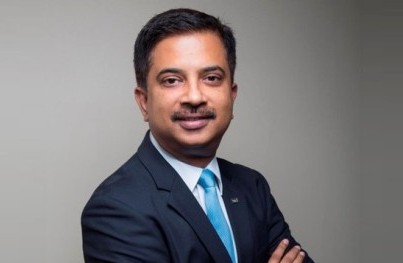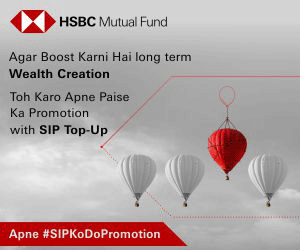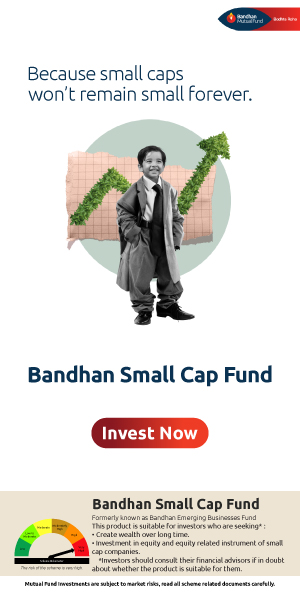COVID 19 has acted as a catalyst and accelerated investment in ESG based funds
BFSI Industry Interview

Mr. Swarup Mohanty is the CEO of Mirae Investment Managers India Pvt. Ltd.
He has over 24 years of experience in the field of financial services including over 17 year’s experience in AMC Sales.
He has also been associated with organizations like Aditya Birla Sun Life AMC Ltd., Religare Asset Management Co. Ltd, Franklin Templeton Asset Management (India) Pvt. Ltd. & Kotak Mahindra Asset Management Company Ltd. in sales responsibilities.
Mr. Mohanty holds a degree in PGDBM and B.COM (HONS.)
ESG investing is a relatively new concept in India. For benefit of retail investors please explain the elements of ESG investing?
ESG stands for Environmental, Social and Governance. In a business context, ESG is about the company’s business model, i.e. how its products and services contribute to sustainable development. It is also about a company’s risk management, i.e. how it manages its own operations to minimize negative impact. Generally, Environmental criteria consider how a company performs as a steward of nature. Social criteria examine how it manages relationships with employees, suppliers, customers, and the communities where it operates. Governance deals with a company’s leadership, executive pay, audits, internal controls, and shareholder rights.Typically, it is seen that the companies that have strong ESG metrics are companies that are well governed and treat their responsibilities to the environment and society seriously and as a result are likely to avoid negative external shocks that can impact their business models.
At the end of the day, the most important factor for investors is getting good returns on their investments. There is a school of thought that focus on ESG may compromise investment performance. What are your views?
There are various studies conducted on linkage between ESG Criteria and Corporate Financial Performance and large majority of the study founded out that there is no performance penalty associated with ESG investing. In fact, on the contrary, there is positive impact of ESG on CFP.
The companies that have adopted strong ESG practice tend to gain in long run by getting a competitive advantage. The competitive advantage is basically result of the following benefits that organization gains from strong ESG practice:
- Lower Risk
- Improved financial performance
- Improved valuation
- Potential higher return to shareholder
Are ESG factors relevant in India from an investment perspective? Please share your views?
Companies don’t operate in a vacuum. In recent years we have witnessed surge in corporate governance issues, labour protest halting the productions and protest against company’s project which are detrimental to the environment.Even Indian Companies are now increasingly impacted by E, S and G factors. Integrating ESG will mitigate risk and improve productivity. Climate risk is one of the biggest threats that India faces as we speak. Going forward the companies need to align their business and operational strategy which creates social value and economic value.Many Indian companies have already adopted Global Report Initiative (GRI) and have aligned their business with one or multiple United Nation Sustainable Development Goals.Aggregating all of these together, we might see incorporation of strong ESG practices and the companies that integrate ESG well into its business and create competitive advantage over the ones who haven’t adopted.
How has the COVID-19 pandemic influenced thinking on sustainability and ESG factors in investments globally and especially here in India?
COVID-19 has acted as a catalyst and accelerated investment in ESG based funds. For instance, Global sustainable funds recorded $45.6bn of inflows over the first quarter of 2020 amid the Covid-19 pandemic. ESG funds were resilient and completely avoided the Covid-19 market sell-off over the first quarter of 2020 that saw $384.7bn withdrawn from the overall fund universe. ESG funds have in general outperformed non-ESG funds during the times of COVID-19 pandemic across the globe.
COVID-19 has brought up many questions in lime lights like how the company has treated its employee during the pandemic, what are the steps taken up by companies for providing healthcare and other related facilities? What are the safety measures made available at work place etc. COVID-19 might mark shift in preference of investment where investor will prefer sustainability over others. “The COVID-19 crisis has not only brought on the greatest recession since World War II, but investors are also calling it the 21st century’s first “sustainability” crisis and one that has renewed the focus on climate change, acting as a wake-up call for decision makers to prioritize a more sustainable approach to investment,” said JP Morgan in one of its report.
In its survey of investors representing across USD $ 13 trillion in AUM, JP Morgan found out that 70% of investor believe events like Covid-19 will spark investor interest over tackling issues like the climate crisis. And more than 50% said the pandemic would be positive for ESG momentum over the next three years.
You are launching an ESG ETF shortly. Please explain the salient features of the NFO?
The NFO period is during October 27th - November 10th. Mirae Asset ESG Sector Leaders ETF is based on newly constructed Nifty100 ESG Sector Leader Index, which aims to provide better exposure to top rated ESG companies across sectors. The new benchmark is based on new research methodology developed by Sustainalytics which is more robust in quantifying the ESG Score. The new Index portfolio has more ESG focus with lesser number of stocks after added various filters that makes the new Index true to its label of identifying sector leaders with strong ESG practice.
We are also offering the FoF route for investors who want to hold the product in the MF form of investment. Fund of Fund will allow investor to invest in ETFs without need of opening a DEMAT and also continue to get Equity taxation benefits. There is no Exit load as well under both options offering flexibility to the investors.
There are a few ESG products in the market, but they are all actively managed funds. Why did you choose to have a passive investment product?
While an investor can take exposure through active funds, ESG ETF offers a good option and is preferred choice of investment vehicle across the globe. ESG ETFs are based on the index that is constructed based on clearly defined rule which are very specific, leaving no room for ambiguity. ETFs track the index that inputs ESG data provided by some of the largest ESG Research provider who have immense expertise on the subject. Rule based investing approach of an ETF also means that investor knows exactly what the fund will and will not invest, which is very critical in case of theme such as ESG. Fees are also a crucial consideration when selecting a sustainable fund. Lower-cost options tend to have greater odds of success as per report published by Morningstar.
Who should invest in your ESG ETF? What should be the recommended investment horizons? What is your advice for investors and distributors about this product?
With growing interest of various stakeholders over how company responds to environment, what kind of social practice is adopted by company and governance practice, ESG integration is set to take a boost in India.Post COVID-19 one thing we all have come across that companies need to have strong integration of ESG practice. As a result, the companies which will have strong ESG practice will outrun the others. There is no passive product tracking an ESG Index, with an index based on robust ESG research. We feel that such a product will offer a low-cost way on investing in portfolio of companies which have sustainable business models, lower risk and positive impact on stake holders.
The product is ideal for all kind of investors from retail to institutional who want to invest in companies with sustainable and robust business models for future and want to avoid any exposure in controversial companies. Unlike other themes, ESG based large cap portfolio can form part of investor’s core portfolio too. The investment horizons should be as per the goal of the investment and similar to equity investments.
Mutual fund investments are subject to market risks, read all scheme-related documents carefully.
Recent Interviews
-
In Conversation with Mr Akhil Chaturvedi Executive Director & Chief Business Officer with Motilal Oswal Mutual Fund
Mar 26, 2025
-
In conversation with Mr Rohit Seksaria Fund Manager Equity with Sundaram Mutual Fund
Mar 7, 2025
-
Partner Connect by Advisorkhoj with Mr P Someswara Rao from Visakhapatnam
Mar 6, 2025
-
In conversation with Mr Deepak Mehta Head Strategic Alliances at UTI Asset Management Company
Mar 1, 2025
-
In conversation with Anunaya Kumar President and Head of Sales and Distribution 360 ONE Asset Management
Feb 21, 2025
Fund News
-
Kotak Mahindra Mutual Fund launches Kotak Energy Opportunities Fund
Apr 3, 2025 by Advisorkhoj Team
-
Groww Mutual Fund launches Groww Nifty 500 Momentum 50 ETF FOF
Apr 3, 2025 by Advisorkhoj Team
-
Groww Mutual Fund launches Groww Nifty 500 Momentum 50 ETF
Apr 3, 2025 by Advisorkhoj Team
-
ICICI Prudential Mutual Fund launches ICICI Prudential Nifty EV and New Age Automotive ETF FOF
Mar 28, 2025 by Advisorkhoj Team
-
UTI Mutual Fund launches UTI Income Plus Arbitrage Active Fund of Fund
Mar 21, 2025 by Advisorkhoj Team




